On Saturday April 23rd Beyoncé released her second visual album “Lemonade” and then entire world stopped. That may be dramatic but have you seen Lemonade? Because it is everything. While the music was deep, moving, and powerful and the storytelling and imagery are her best works yet; there is still so much to analyze about this album.
We can only speculate as to what sparked this musical shift in her career. Could it be the public dying to know personal details of her life? The flood in New Orleans? The seemingly ongoing accounts of police shootings of people of color? The rise of the Black Lives Matter Movement? Motherhood?
Whatever the reason, there is no doubt that it is her most revolutionary piece of work to date. In the aftermath of witnessing, listening and participating in such an extraordinary album, I have a few thoughts:
1. Feminism doesn’t mean you’re always strong.
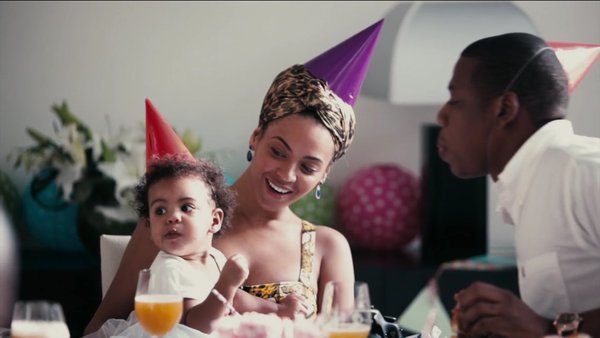
Photo courtesy of etonline.com
This go around she has given us more insight about what it means to be a feminist. Feminism traditional depicts women as strong and unapologetically independent. Beyoncé flips that on it’s head.
By acknowledging that sometimes women (specifically black women) are weak and broken, she has brought the realness back into the feminist movement. Because women are more than just powerhouses or helpless, we’re complex. Even matriarchs have their fair share of hardship. More importantly, in the game of love sometimes women choose to stay despite infidelity and it doesn’t make them less of a woman or a feminist. Despite what anyone says.
2. Her blackness is not just personal, it’s historical.
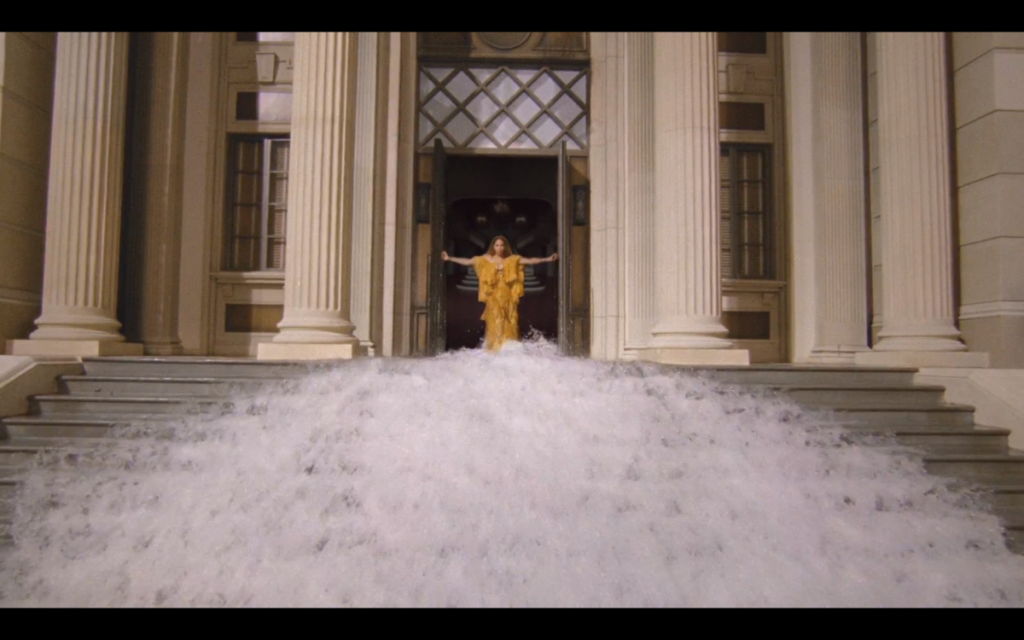
Photo courtesy of mashable.com
Her album arrived in what seems like perfect timing; amongst seas of cultural appropriation, the likes of those trying to replicate things black women are condemned for, the racial tension expanding across America and the general weirdness and hypocrisy of pop culture. The blackness that Beyoncé portrays in this album is unapologetic, worth praise and celebrated with grace from multiple angles.
Starting with her portrayal of Oshun as she break free from the flood of her depression. Oshun is the Nigerian, Cuban and Brazilian goddess of sweetwater, sexuality and creativity. Then on to being surrounded by flames as her coven cast spells, she’s Erzulie Red-Eyes, the Haitian lwa Edwidge Danticat calls the “hot-blooded Erzulie who feared no men but rather made them her slaves, raped them, and killed them … the only woman with that power.”
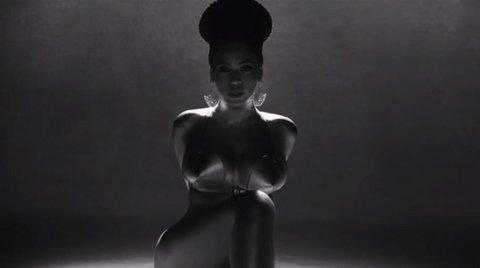
Photo courtesy of vogue.com
Last but not least, crowned in braids she’s Nefertiti, the powerful Egyptian queen-deity. Once again this time more evident than ever Bey is using her platform to uplift artists of color and to show their influence on her and what she thinks should be their influence on the world.
3. It’s time we celebrate women of color.
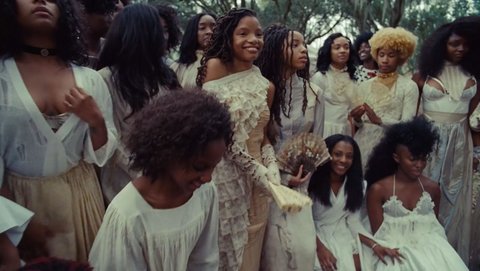
Photo courtesy of cinema blaze.com
Beyoncé and her tribe of women are the most diverse group of black women to cross a screen in a long time. Most prominently Serena Williams who has been criticized for her curves and muscular physique, slays and embraces her sexuality. Women of all ages, shades and textures collide into a beautiful display of the beauty that is black women.
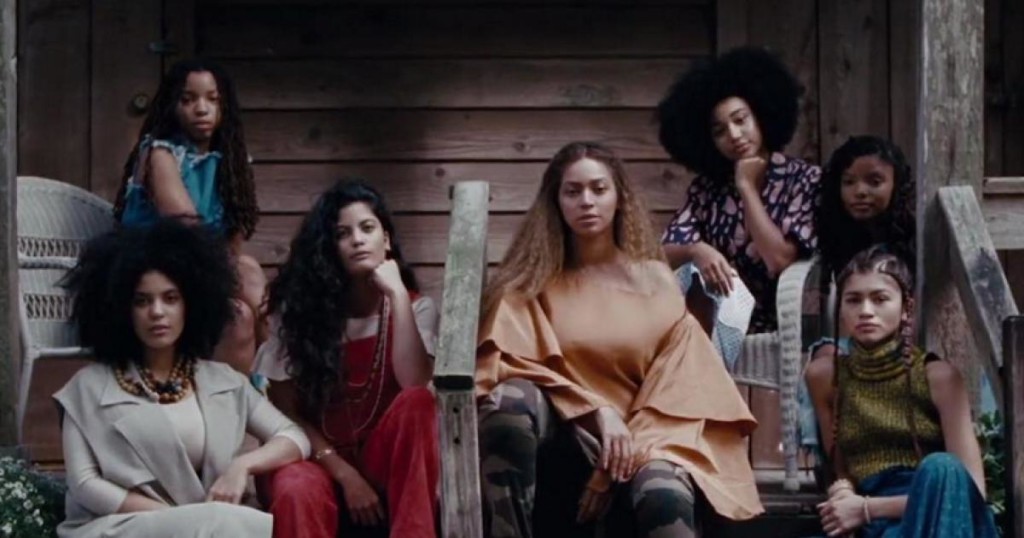
Photo courtesy of meltyfashion.fr
Representation is so important. In this album there’s an image to young girls everywhere that shows the diversity and beauty of blackness but also in spirit is astounding. This isn’t to say that other women aren’t equally astounding and beautiful but in a society that constantly ignores women of color as beauty icons, and anything more than background figures and best friends, it’s time that women of color have the chance and the power to take center stage.
4. She has political commentary.
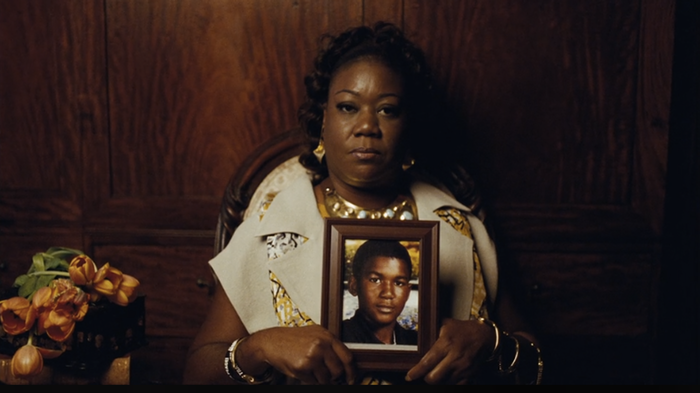
Photo courtesy of theatlantic.com
And she doesn’t need the media to talk about it. The album features the mothers of Trayvon Martin, Michael Brown and others whose sons have been killed in shootings, holding their portraits during the song “Forward.” She also combines sounds and imagery from many eras to salute black life, invoking the antebellum South, Malcolm X, and the young victims of police brutality.
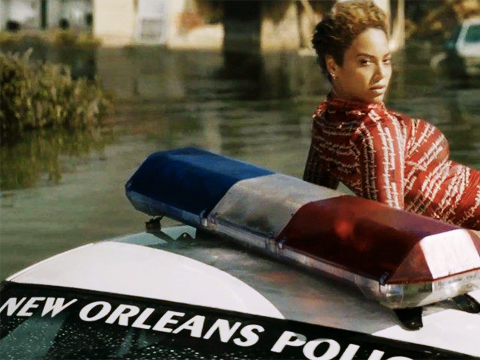
Photo courtesy of businessinsider.com
Beyoncé has been notoriously mum on the matters of blackness in America while donating money behind closed doors. She has finally unleashed her opinions and support of those who have been affected by police brutality and despite the public trying to paint her as anti-police she has proven time and time again that she doesn’t care what you think and she will acknowledge the rumors when she is ready.
4. Cyberbullying is real. The Beyhive is wrong.
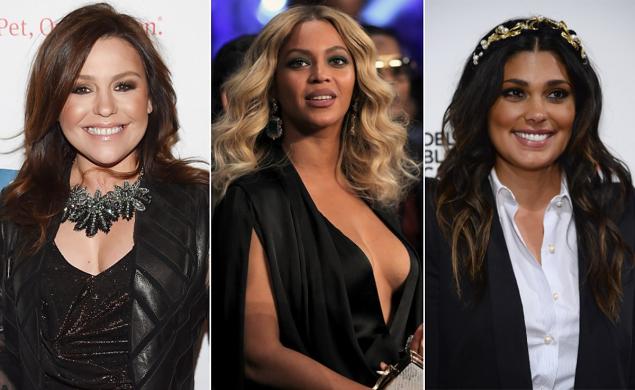
Photo courtesy of hollywoodlife.com
Despite the hilarity of the Rachael Ray/ Rachel Roy mix-up, the truth of the matter is that the Beyhive was cyber bullying Rachel Roy. Despite no factual evidence that Beyoncé’s Lemonade is autobiographical or that Rachel is Jay Z’s alleged mistress, the Beyhive went after her.
Going after her and her daughters is just wrong and forcing someone to limit their public interaction because of hateful comments and death threats are ridiculous. Beyonce’s use of the word Becky doesn’t mean she’s calling out anyone in particular.
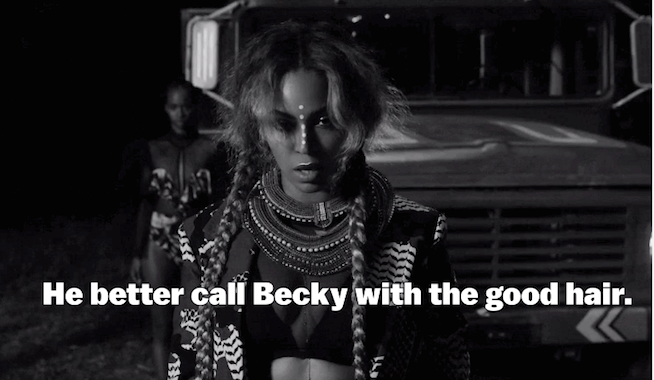
Photo courtesy of hollywoodlife.com
Oh, and Becky is a generic term for white women who don’t get and/or are insulting to African American women. Could it be she was referring to her father’s infidelity scandal in which he leaves her mother for a white woman and has two children? Who knows! But, let’s stick with the golden rule: if you don’t have anything nice to say, don’t say anything at all.
5. Beyoncé isn’t just a pop artist.

Photo courtesy of elleuk.com
She stands on her platform and refuses to let the public pigeonhole her into just being a pop artist. She works with a myriad of artists including Diplo, the Weeknd; Ezra Koenig, of Vampire Weekend; Jack White, The-Dream, Animal Collective, James Blake, Kendrick Lamar, and the Yeah Yeah Yeahs.
She also samples Soulja Boy and Led Zeppelin proving that music is transcendental. It is also collaborative. Beyoncé collaborated with multiple writers to create each track. While some think that sole authorship is the hallmark of a true genius, innovative art and cultural phenomena has rarely come about in a vacuum.
6. She acknowledges the many levels of mental health.
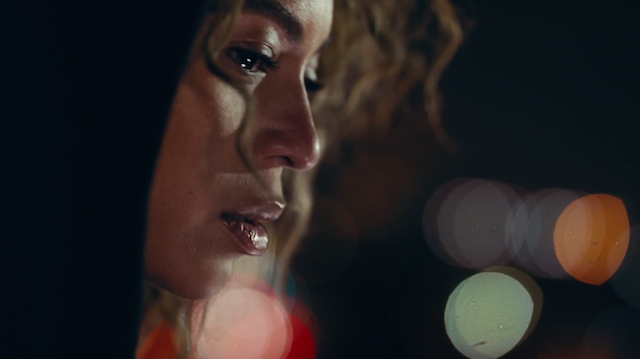
Photo courtesy of theguardian.com
The videos, heavy on Southern gothic imagery, are broken up with title cards that play on the Kübler-Ross model of grief — intuition, denial, anger, apathy, emptiness, accountability, and reformation. The significance of mental health both in and out of relationships is overwhelming and so prominent throughout the album.
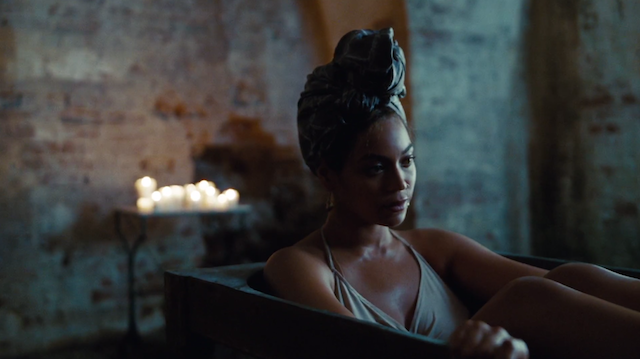
Photo courtesy of vibe.com
Relationships, made up of two imperfect people, are also messy, complicated, filled with mistakes and in need of compromise and forgiveness to keep functioning. Even celebrities (this hinging on the assumption that Lemonade is autobiographical) deal with loss, anger, and uncertainty. In the most cliché way ever: Beyonce is just like us.
7. Love isn’t always easy but it’s worth it.
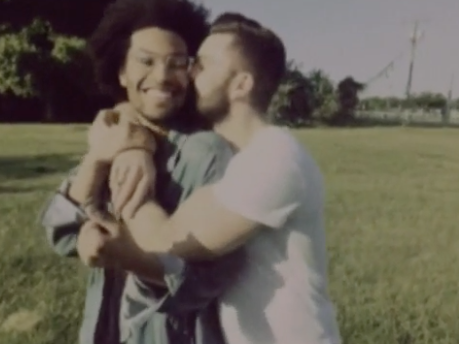
Photo courtesy of logo.com
In “All night” there is a beautiful recognition of love. Its struggles, its hardships and its beauty. A montage of couples go by from across the spectrum. From interracial couples to LGBTQ, there’s all types of love. The inclusivity of this montage is important.
It brings together and brings closure to all of emotions we felt throughout Lemonade because at the very root of it all is love. That love can be complicated and painful but it also can be intrinsically wonderful and fulfilling no matter who you’re with.
8. The thirst is too real.

Photo by Jocelyn Hsu
Because seriously, where’s my glass of lemonade? It’s hot and I’m thirsty. Slay.




